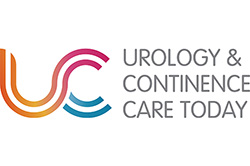References
Department for Education (2015) Supporting pupils at school with medical conditions. Statutory guidance for governing bodies of maintained schools and proprietors of academies in England. Available online: https://assets.publishing.service.gov.uk/government/uploads/system/uploads/attachment_data/file/803956/supporting-pupils-at-school-with-medical-conditions.pdf
Heron J, Grzeda MT, von Gontard A, Wright A, Joinson C (2017) Trajectories of urinary incontinence in childhood bladder and bowel symptoms in adolescence: prospective cohort study. BMJ Open 7:e014238
Koppen IJN, Vriesman MH, Saps M, et al (2018) Prevalence of functional defecation disorders in children: Asystematic review and meta-analysis. J Pediatr 198: 121–30
Leivne DT, Morton J, O’Reilly M (2020) Child safety, protection and safeguarding in the time of COVID-19 in Great Britain: Proposing a conceptual framework. Child Abuse Negl 110: 104668
Mahase E (2021) Covid 19: Children’s mental health services in England are ‘nowhere near sufficient’ says commissioner. BMJ 372: n258
Office for National Statistics (2020) Population estimates for the UK, England and Wales, Scotland and Northern Ireland: mid-2020. Available online: https://www.ons.gov.uk/peoplepopulationandcommunity/populationandmigration/populationestimates/bulletins/annualmidyearpopulationestimates/latest
Whale K, Cramer H, Joinson C (2017) Left behind and left out: the impact of the school environment on young people with continence problems. Br J Health Psychol 23(2): 253–77
Heron J, Grzeda MT, von Gontard A, Wright A, Joinson C (2017) Trajectories of urinary incontinence in childhood bladder and bowel symptoms in adolescence: prospective cohort study. BMJ Open 7:e014238
Koppen IJN, Vriesman MH, Saps M, et al (2018) Prevalence of functional defecation disorders in children: Asystematic review and meta-analysis. J Pediatr 198: 121–30
Leivne DT, Morton J, O’Reilly M (2020) Child safety, protection and safeguarding in the time of COVID-19 in Great Britain: Proposing a conceptual framework. Child Abuse Negl 110: 104668
Mahase E (2021) Covid 19: Children’s mental health services in England are ‘nowhere near sufficient’ says commissioner. BMJ 372: n258
Office for National Statistics (2020) Population estimates for the UK, England and Wales, Scotland and Northern Ireland: mid-2020. Available online: https://www.ons.gov.uk/peoplepopulationandcommunity/populationandmigration/populationestimates/bulletins/annualmidyearpopulationestimates/latest
Whale K, Cramer H, Joinson C (2017) Left behind and left out: the impact of the school environment on young people with continence problems. Br J Health Psychol 23(2): 253–77


